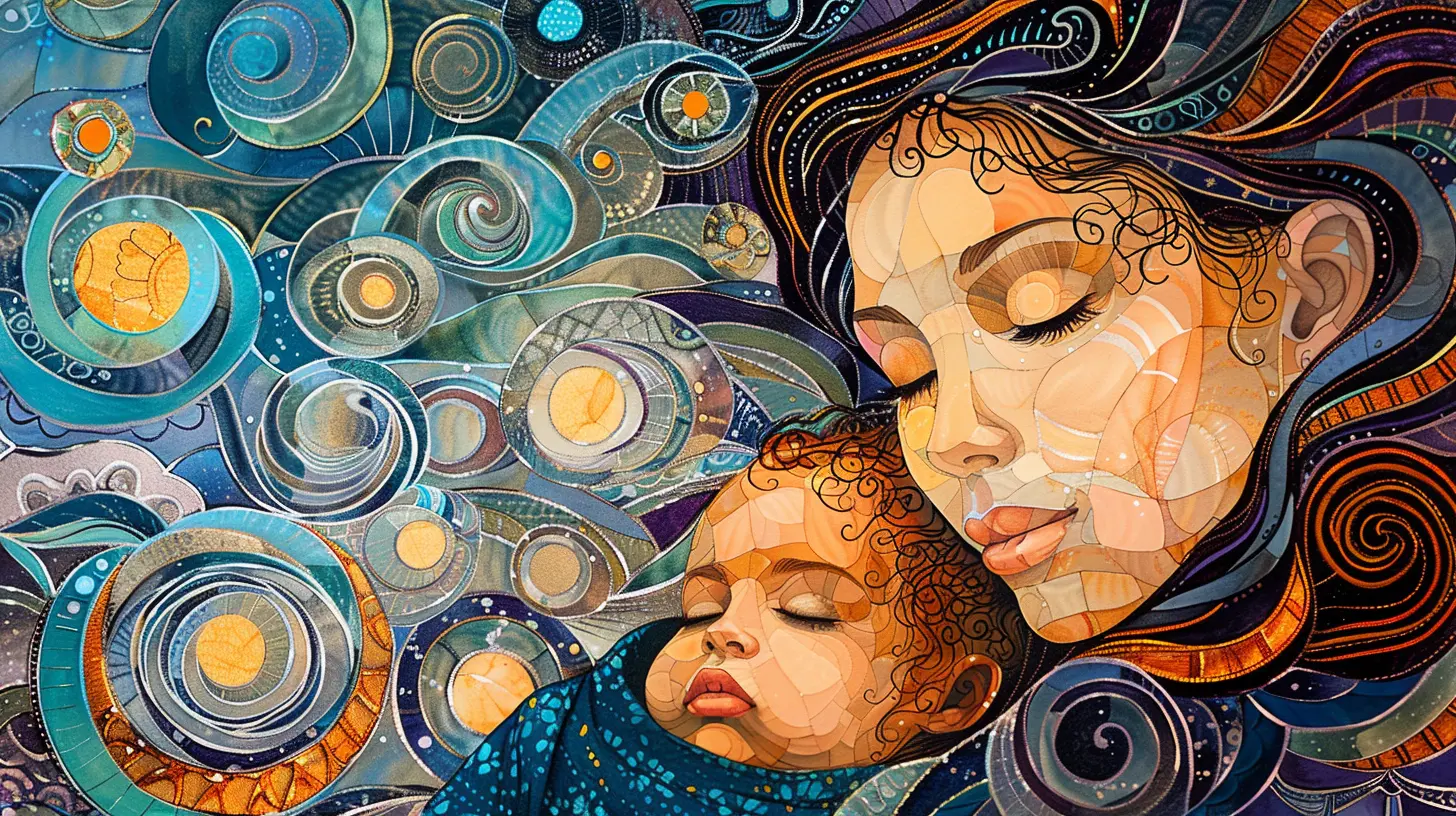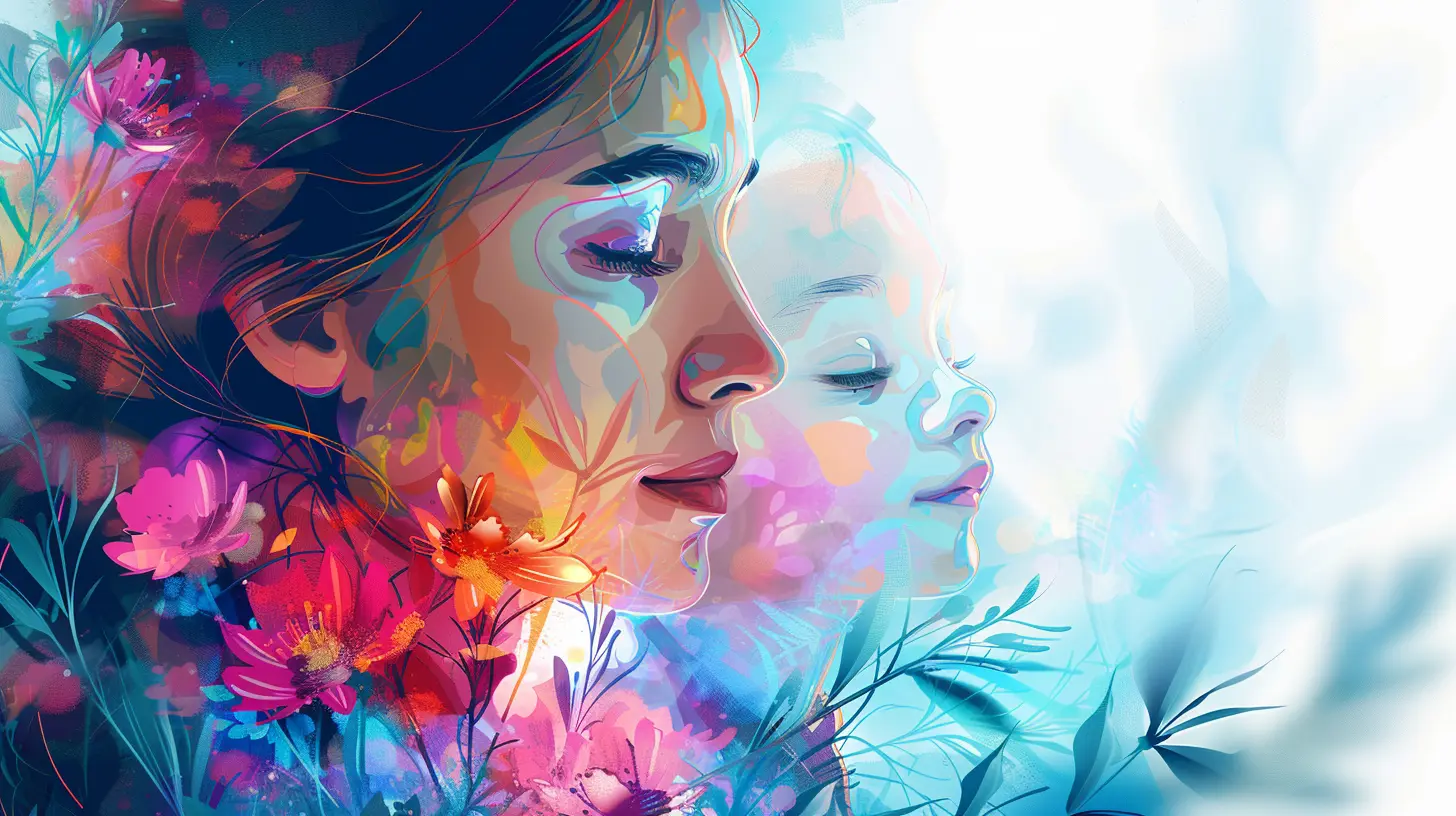Baby Blues vs. Postpartum Depression: Know the Difference
25 May 2025
Becoming a parent is one of the most beautiful yet challenging experiences in life. The rollercoaster of emotions, sleepless nights, and overwhelming responsibilities can leave any new mom feeling a little shaken. But what happens when those emotions go beyond the typical exhaustion and mood swings?
Many new mothers experience “baby blues,” but for some, those feelings deepen into something more serious—postpartum depression (PPD). Understanding the difference between the two is crucial to ensuring the well-being of both the mother and her baby. Let’s break it down in a simple, relatable way.

What Are the Baby Blues?
Think of baby blues as an emotional storm that rolls in shortly after childbirth. It’s temporary, it’s common, and it usually fades away on its own. In fact, about 70-80% of new moms experience baby blues in the first few days postpartum.Symptoms of Baby Blues
If you’re experiencing baby blues, you might notice:- Sudden mood swings (one minute, you’re laughing—next, you’re in tears)
- Feeling overwhelmed or anxious
- Irritability or restlessness
- Difficulty sleeping (even when the baby is sleeping)
- Mild sadness or crying for no clear reason
These feelings usually peak around day 4 or 5 postpartum and resolve on their own within two weeks. They don’t interfere with your ability to care for your baby or yourself, though they can feel overwhelming in the moment.
What Causes Baby Blues?
After giving birth, your hormone levels drop dramatically—estrogen and progesterone take a nosedive, and this messes with your brain chemistry. Combine that with exhaustion, sleep deprivation, and the immense pressure of caring for a newborn, and it’s no surprise that most moms go through a rough emotional adjustment.The good news? Baby blues don’t last—they fade as hormone levels stabilize and you adjust to your new role. 
What Is Postpartum Depression?
Now, postpartum depression (PPD) is a different story. It’s not just a phase or a temporary shift in mood—it’s a serious mental health condition that requires attention.Unlike baby blues, PPD doesn’t go away on its own and can last for months if left untreated. It also affects 1 in 7 mothers, making it far more common than most people think.
Symptoms of Postpartum Depression
PPD symptoms are much more intense than baby blues and can significantly interfere with daily life. Here are some red flags:- Persistent sadness or hopelessness
- Extreme fatigue (beyond normal new-parent exhaustion)
- Frequent crying spells without an obvious reason
- Loss of interest in things you once enjoyed
- Difficulty bonding with your baby
- Feeling unworthy or like you're failing as a mom
- Severe anxiety or panic attacks
- Irrational fears about harming yourself or your baby
- Changes in appetite (eating too much or too little)
- Withdrawing from family and friends
PPD can develop anytime in the first year postpartum, though it typically starts within the first 4-6 weeks. If these feelings persist beyond two weeks, it’s likely more than just baby blues.
What Causes Postpartum Depression?
There’s no single cause of PPD, but a mix of biological, psychological, and environmental factors contribute to it. Some common risk factors include:- Hormonal changes (huge drops in estrogen and progesterone can trigger depression)
- Lack of sleep (exhaustion makes everything harder)
- Personal or family history of depression
- Difficult pregnancy or traumatic birth experience
- Lack of social or emotional support
- High levels of stress (financial worries, relationship struggles, etc.)
Essentially, PPD is more than just “feeling off.” It’s an actual medical condition that deserves support, compassion, and treatment. 
Baby Blues vs. Postpartum Depression: Key Differences
Here’s a quick comparison to help differentiate the two:| Feature | Baby Blues | Postpartum Depression |
|-----------------|-------------|----------------------|
| Onset | Within a few days after birth | Within first year postpartum |
| Duration | Usually lasts up to 2 weeks | Lasts much longer, can persist for months |
| Symptoms | Mild mood swings, irritability, crying, fatigue | Severe sadness, withdrawal, extreme fatigue, hopelessness, anxiety, difficulty bonding with baby |
| Impact on Daily Life | Does not usually interfere with functioning | Can make daily tasks and baby care very difficult |
| Treatment Needed? | Generally no treatment, resolves on its own | Requires professional help (therapy, medication, or both) | 
When to Seek Help
If you or a loved one is struggling with postpartum emotions, it’s important to listen to your gut. If symptoms:- Last longer than two weeks
- Get worse over time
- Affect your ability to care for yourself or your baby
- Include thoughts of self-harm or harming the baby
Then it’s time to reach out for help. You are not alone, and there is help available.
Treatment for Postpartum Depression
Fortunately, PPD is treatable. If you’re experiencing symptoms, reaching out to a healthcare provider is the first step.Common Treatments Include:
- Therapy (Cognitive Behavioral Therapy (CBT) and talk therapy can be incredibly effective)- Medication (Antidepressants may be prescribed if needed, safe options are available for breastfeeding moms)
- Support groups (Talking with other moms going through the same thing can be a game-changer)
- Lifestyle changes (Rest, a healthy diet, movement, and self-care can make a difference)
- Partner and family support (Having a strong support system is crucial)
There’s no shame in seeking help—PPD is not a reflection of your ability as a mother. It's a medical condition that needs treatment, just like any other illness.
Supporting a Loved One with Baby Blues or PPD
If someone close to you is struggling, here’s how you can help:- Listen without judgment – Sometimes, all a new mom needs is to feel heard.
- Offer practical support – Help with meals, household chores, or baby care.
- Encourage her to seek help – Gently suggest speaking to a doctor or therapist if symptoms persist.
- Be patient – Recovery doesn’t happen overnight, but your support makes a difference.
Final Thoughts
Bringing a baby into the world is a life-changing experience, and it comes with an emotional whirlwind. While baby blues are temporary and fade on their own, postpartum depression is a more serious condition that requires attention.If you’re struggling, don’t suffer in silence. Reach out, seek help, and remember—you are not alone in this journey. Motherhood is hard, but you don’t have to go through it without support.
all images in this post were generated using AI tools
Category:
Postpartum RecoveryAuthor:

Kelly Snow
Discussion
rate this article
3 comments
Tatianna Roberts
Thank you for clarifying this important topic; it’s so helpful for new parents.
June 7, 2025 at 4:50 PM

Kelly Snow
You're very welcome! I'm glad you found it helpful.
Kai McDermott
Important distinctions; awareness is key for mothers.
June 3, 2025 at 2:22 AM

Kelly Snow
Thank you! Awareness is indeed crucial for mothers to recognize and address their mental health needs.
Zain Vance
“Baby blues are like hiccups; postpartum depression is more like a marathon with no finish line!”
May 26, 2025 at 3:56 PM

Kelly Snow
That's a great analogy! Understanding the distinction between baby blues and postpartum depression is crucial for new parents seeking support.



